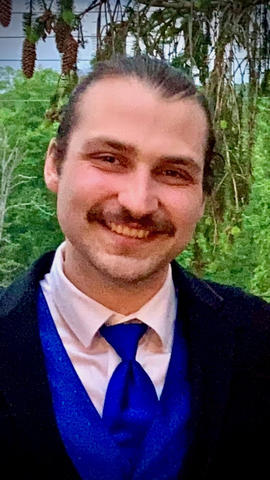
Michael Hochstein
Entering Class - 2023
E-MAIL: [email protected]
Undergraduate Institution and Major:
Mount St Marys College, B.S. in Biochemistry & Biopsychology, 2020
Training the next generation of Neuroscientists

Entering Class - 2023
Mount St Marys College, B.S. in Biochemistry & Biopsychology, 2020
